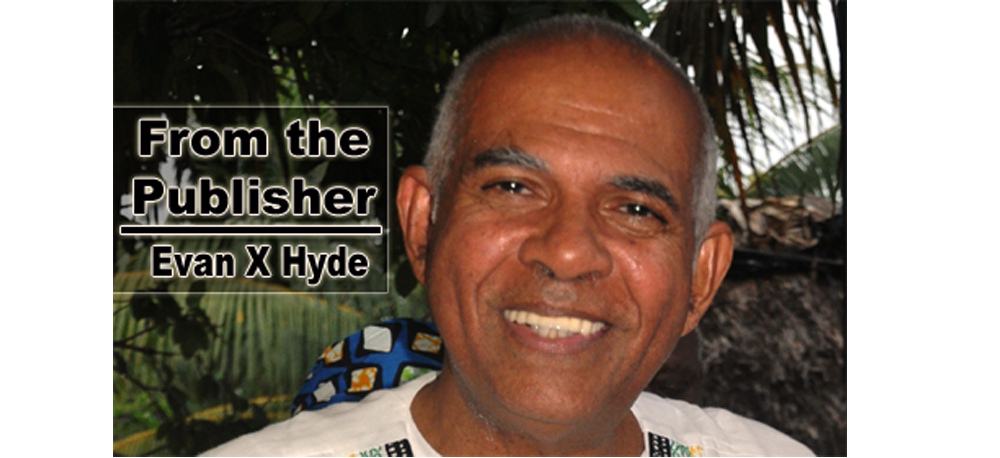In the year 2004, University of Belize professor Joe Iyo did a series of taped interviews with various former officers, members, and associates of the United Black Association for Development (UBAD), an organization which lasted in Belize from February of 1969 until November of 1974. The number of Iyo’s interviewees was 13.
I was not included among the interviewees, and I suppose it was because I had done so much writing and expressed so many opinions over the years about the organization, of which I had been president.
Neither was the late Robert “Rasta” Livingston, whom I mentioned in this column last week, included in the interviewees. And that is very unfortunate, because Livingston was the man who connected Jamaica, Belize, and New York City where the UBAD organization was concerned.
After he took me to Liberty Hall in early January of 1969 to address the local UNIA, of which he was general secretary, and which at the time included such famous figures in British Honduras history as Matron Vivian Seay, Nurse Cleopatra White, and Elfreda Reyes, Livingston became an officer of the original UBAD the following month.
Livingston, whom we called “Rasta,” was a huge, serious black man who had worked in the carpentry section of the Holy Redeemer Parish, a Roman Catholic church and school which stretched from North Front Street to New Road, between Queen Street and Hyde’s Lane. When he came up to me on the night of January 1, 1969, he was limping because he had been badly injured in the hip area, I would guess in a traffic accident.
It seems to me that Livingston was Belize’s first Rastafarian, and his introduction to Rastafarianism would have come about as a result of his having been sent to Jamaica for specialist treatment for his injury. As a result of his contact with Jamaican Rastas, he introduced the phrase “peace and love” to the rest of us in the original UBAD.
It had to have been that other Belizeans, specifically those who went to study at the University of the West Indies campus in Mona, Jamaica, had met Rastafarians on the island, but it was Livingston who appeared to embrace the beliefs of the Rastas, a religious group which emerged in the early 1930s out of the teachings of Marcus Garvey’s Universal Negro Improvement Association. Garvey, Jamaican-born, and his UNIA had been very, very powerful in New York, and indeed worldwide, in the 1920s after World War I. The UNIA, as such, splintered after the United States government imprisoned Garvey around 1927, 1928.
My sense was that Livingston may have gone to Jamaica more than once for medical treatment, and I felt that he may have been on the island when Haile Selassie I visited Kingston in 1966. On the occasion of Selassie’s visit, so many Rastafarians came down from the hills that the Emperor, whom the Rastas considered divine, was at first reluctant to come out of his airplane, feeling intimidated by the incredible size of the crowd.
When UBAD was organized, Assad Shoman and Said Musa, young Palestinian attorneys, immediately joined us, but after two or three months, Shoman and Musa decided to form the People’s Action Committee (PAC), because, they argued, they wanted something more political, whereas UBAD at the time was totally cultural.
At the meeting in UBAD’s Hyde’s Lane office where Assad and Said proposed a PAC alliance with UBAD, I will never forget Livingston’s standing up dramatically and expressing the very strong opinion that: “PAC is already formed and it have economic strength.” I was stunned by his assertiveness, and a couple people have suggested to me over the years that Rasta may have held conversations with the Deputy Premier at the time, Hon. C. L. B. Rogers.
But, just a couple months after PAC and UBAD met, Rasta flew out to New York City for medical attention, and it was many years before he returned for a visit home.
It appears to me that while in New York, Rasta and Norman “Imamu” Fairweather forged a strong friendship, and it may have been partly as a result of his conversations with Livingston that Norman made the bold decision to return home to Belize and assist with the UBAD movement.
There were at least two important differences between Belize during the UBAD era and Belize today. The first is that there was no cocaine in the streets back then, and the second is that Afro-descendant people were the clear majority in Belize City, which was the country’s population center.
As an aside to the reality of black majority, was the fact that, unlike the case today, there was almost no homicidal violence being committed by black youth against each other. It is, of course, a very sad and traumatic situation that we have been experiencing, mainly in Belize City, since the late 1980s/early 1990s. At the level of our youth, black society here has crumbled.
I think back to UBAD, and I think of the information now available about how the revolutionary friends and government leaders in Grenada, Maurice Bishop and Bernard Coard, went against each other, under pressure from regional and international forces, and Coard slaughtered Bishop in 1983, whereupon the United States invaded the Caribbean island.
There were misreads among friends in UBAD, and those misreads led to misunderstandings, and then people began to take sides. It happens all over the world when and where oppressed people attempt to create organizations to fight for freedom, justice, and equality.
My column today is dedicated to the memory of Robert “Rasta” Livingston, because he was such a dynamic and important figure in UBAD’s early history. He left for America when the seeds were still in the ground, so to speak.
Professor Iyo and the one Yasser Musa say they plan to edit Iyo’s UBAD interviews and publish a book. It should be an interesting publication. Unfortunately, Rasta was never interviewed. It is a pity.

